Ask the Experts: Anxiety, Fear and the Covid-19 Pandemic
This is the first in a two-part series. Do read Part 2 on how to cope, ‘How the Light Gets In’
By Scherezade Siobhan
There have been some obvious shifts in how conversation flows with my clients since the COVID-19 outbreak. One of the more obvious changes has been recognising how heightened anxiety can no longer be considered an exception to the rule, but a collective experience that is shifting through us in forceful ways. A friend of mine who deals with severe health anxiety has been surprisingly calm. She speaks more about her worry for her financial future than her worry about her health right now. It is a sub-conscious ladder where one kind of anxiety is a rung higher than the other. In her own words, “It is still scary but it almost feels like I was prepared for it, even though it was labelled irrational by others. What I wasn’t prepared for is how severely this impacts my job in an industry which totally runs on a gig economy model.”
ALSO LISTEN: LET’S TALK: HOW ARE WE FEELING?
This shows us how anxiety has a shifting goal-post. Fear is a negative emotion that brings about an influx of turbulent feelings including panic, nervousness, dissonant thoughts, constant rumination further extending to severe distress and chronic worry. When it is held within the bounds of rational awareness, it helps us recognise possible threats and dangers and respond to them. It is a widely held misbelief that all negative emotions are harmful to us. Technically, a lot of negative emotions exist as warning signs in a complex system of psychological checks and balance. Their purpose is to help us with our survival. Trouble arises when debilitating phases ranging from adverse childhood experiences, poor familial support, oppressive social and political systems, abuse, injustice, illness and/or impairment of the brain can keep us constantly shuttling a volley of negative emotions. We feel caged. In these situations, we are often caught in a loop of helplessness that exerts a crashing pressure on our ability to feel free.
ALSO READ: HOW THE LIGHT GETS IN: PART TWO OF THIS SERIES
We often speak about anxiety in decidedly individualised ways, as we do about most mental health. People who live with generalised anxiety are made to believe that it is solely within their control whether they are impacted by it or not. We now see that this is a myth aimed to take the heat off of our prevalent socio-economic realities. Unjust societies push people to feel panicky and unstable on a regular basis and even profit from this. Tarot practitioner Jessica Dore had once tweeted that every thought is not a message. It is a powerful statement. However, when we live in a world where our inboxes and apps are perpetually filling up with notifications, it is not that difficult to see how we are often thrown into unpredictability.
Our existence and survival in this world depends a lot on how we respond to stimuli around and within us. What we often fail to factor is that between stimuli and response lies the space for choice. This choice is often a set of behaviors guided by a collection of beliefs. Prolonged and severe anxiety can erase the possibility of choice and we end up feeling like we are locked into forced reactions. It is this panic which causes people to feel helpless.
A client of mine works in a different city away from her parents who are both diabetic and asthmatic. Due to the compulsory lockdown, my client can’t visit them right now and even though she communicates daily with them. She has been experiencing severe anxiety about something bad happening to them. A large part of this is due to the fact that they don’t have any other caregivers in their vicinity. This helplessness can feel permanent in the moment it occurs and without any support system to help alleviate it, it can overpower our emotional thermostat.
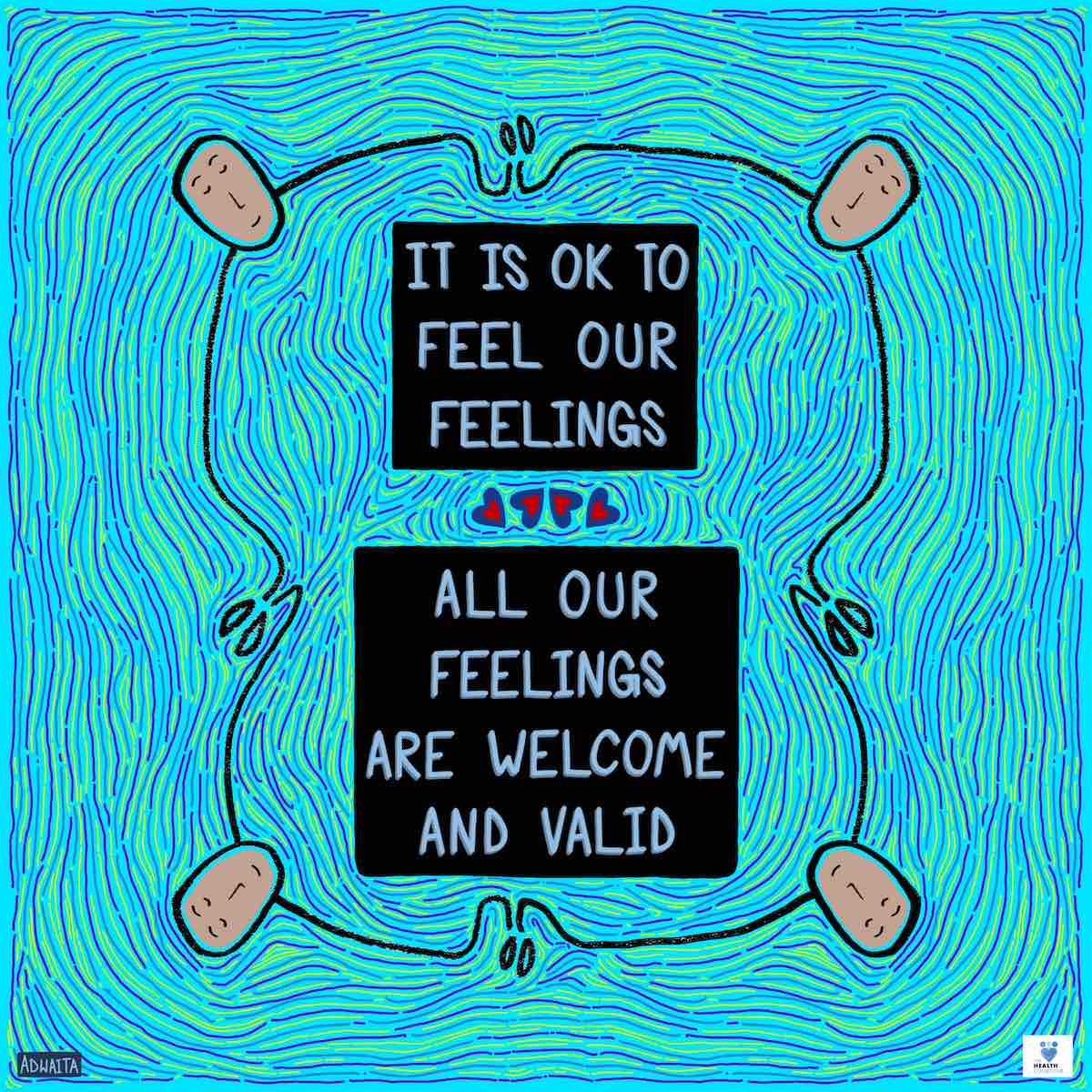
In social sciences, the term “emotional contagion” is consequential. It refers to how one person’s emotions and associated behaviours can elicit similar responses in another person or group. We saw firsthand how prevalent stigma against Northeastern Indians escalated in vituperative outbursts. We also witnessed doctors and airline staffers being removed from rented apartments by landlords. On the other hand, we are seeing young people volunteer their assistance for old folks who are completely quarantined. It is devastating to watch migrant workers in their agonising on-foot journeys trying to return home. But there is also an emergence of helpers, ordinary citizens most of them, who are volunteering to help, thus proving that emotional contagion can work both ways. Anxiety is a reaction to diminished control. The fear that powers our anxiety is usually a survival instinct. However, when it enters a truly disordered state, we flail unanchored.
ALSO READ: LIVING WITH DEPRESSION, PANIC ATTACKS AND ANXIETY
Neuroscientist Lisa Feldman Barrett has contested the premise that neural circuits within our brain are the dominant levers for our emotions. Her “Theory of Constructed Emotions” suggests that emotions aren’t readymade or pre-coded into our brains. Her research indicates that the human brain actually creates emotions on-the-go depending on past experiences and socio-cultural ingredients. Therefore, in her own words, “our brains aren’t merely regulating our body’s budget but also helping to regulate other people’s, and other people are helping to regulate you.”
Barret refers to emotions as a social reality. We live and learn through co-regulation.
In his essay, “The Usefulness of Dread”, Samir Chopra writes poignantly about the loss of his parents and his own journey dealing with pervasive anxiety. He further asserts that anxieties aren’t immortal or invincible.
“We are rational animals, but implicit in that rationality is an anxiety. The rational animal remembers and has learned from its past; it anticipates and plans for its future; it modifies its present, anxiously, in response to these memories and anticipations; it is anxious to avoid mistakes, even those it cannot remember and has consigned to the unconscious forgotten.”
It is our ability to learn and modify our responses and, as an extension, our relational contact with the world around us that can ease the severity of our anxieties. As difficult a time as this is, it is also ripe for assessing how we choose to proceed here on as a collective, not just disparate presences. We need to believe in the wisdom of iterations when it comes to our healing. While we practice physical distancing, let us also distance ourselves from contrivances of “productivity”. Let us be of use without always attaching a price or calculable value to it. Let us agree once and for all that medicalising loneliness is not a long-term solution.
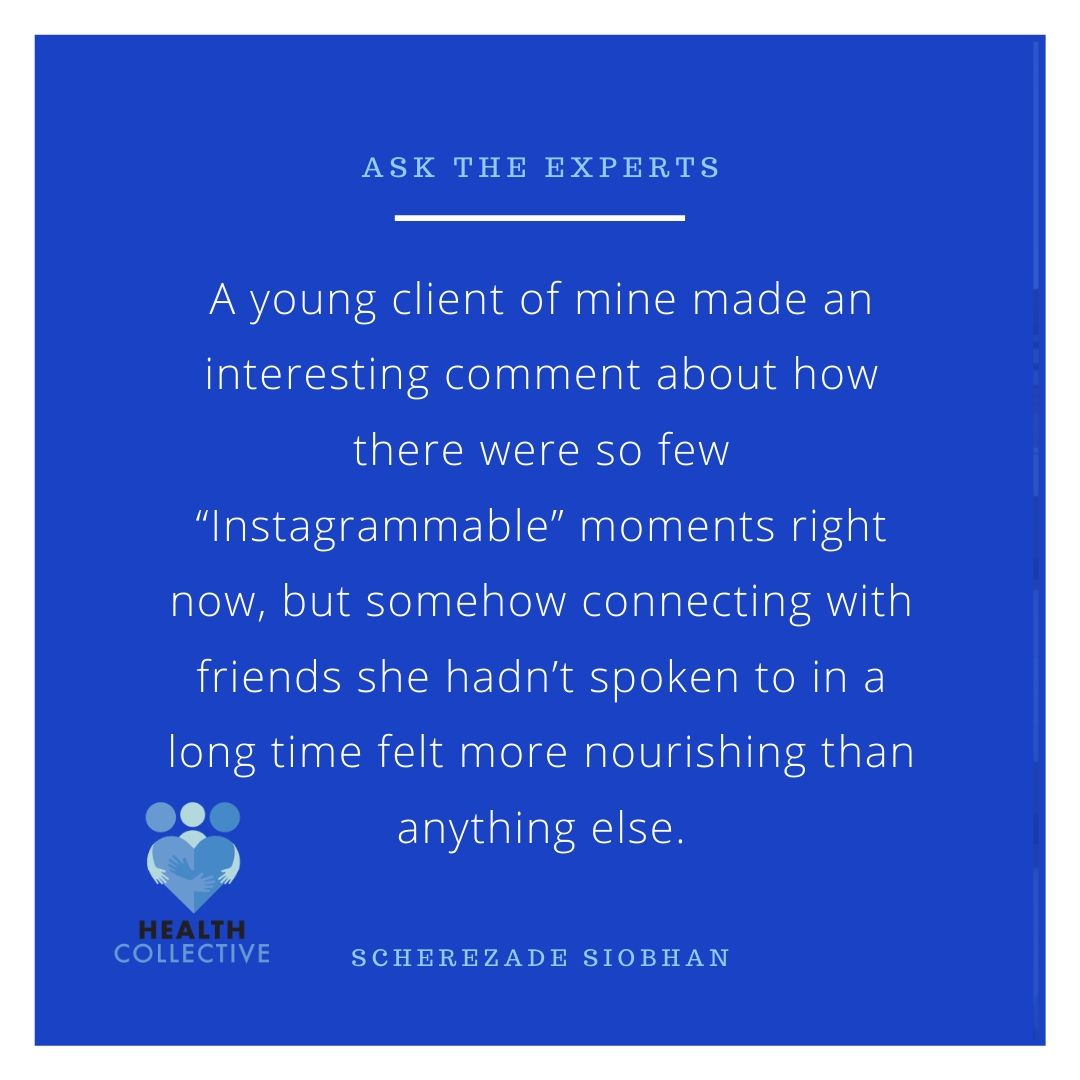
A young client of mine made an interesting comment about how there were so few “Instagrammable” moments right now, but somehow connecting with friends she hadn’t spoken to in a long time felt more nourishing than anything else. It reminded me of the concluding paragraph of Chopra’s essay, where he writes evocatively about the “usefulness” of his anxiety—
“My anxieties tell me I’m still capable of feeling. They provide an acute reminder that I’m alive and responsive, and yes, anxious. My anxieties about my family inform me that I have let myself become wrapped up in their selves; they inform me of the boundaries I have formed around and about myself; they inform me of what my self is.”
We can’t alter the stressor or the trigger, perhaps. We can, however, alter how we want to respond to them. We can acknowledge the discomfort and unpleasantness we are experiencing without stretching ourselves thin finding instant fixes for the negative feelings we encounter right away. We can switch off for a bit and realign with the fact that every feeling is not a command. We can take a few steps back and find smaller ways to stay standing in the greyness of this experience.
COVID-19 has raised a heavy storm of confusion and fear in several people. Its occurrence is also shedding light on how mismanaged the global response tends to be in the face of a burgeoning catastrophe. It has exposed how dysfunctional our prevailing frameworks for work and wellness seem to be. In Ancient Greek, “apocalypse” actually meant “lifting the veil off” and this emergency has exposed the tacit bigotry lurking around us. We are encountering our collective selves through this experience. We can’t disengage from the realisation that an ultra-capitalist society values corporations over communities and is woefully unprepared to meet the needs of suffering peoples. On the flip side, it is also showing us that sustainable change through collective action rooted in solidarity and radical compassion is our only bridge to the future.
Citations:
- How Emotions Connect Your Body and Brain (Kevin Berger in conversation with Lisa Feldman Barrett)
- The Usefulness of Dread (Samir Chopra in Aeon)
ALSO READ PART TWO IN THIS SERIES
Disclaimer: Views expressed are personal
About the Author: Scherezade Siobhan is the founder of The Talking Compass — a therapeutic practice that provides in-person, at-home and online counselling for people who need help with emotional and mental health. She is the creator and curator of The Mira Project, a global dialogue on women’s mental health, gendered violence, and street harassment.
Read More by Scherezade Siobhan on The Health Collective
Feature Image by Dustin Belt on Unsplash

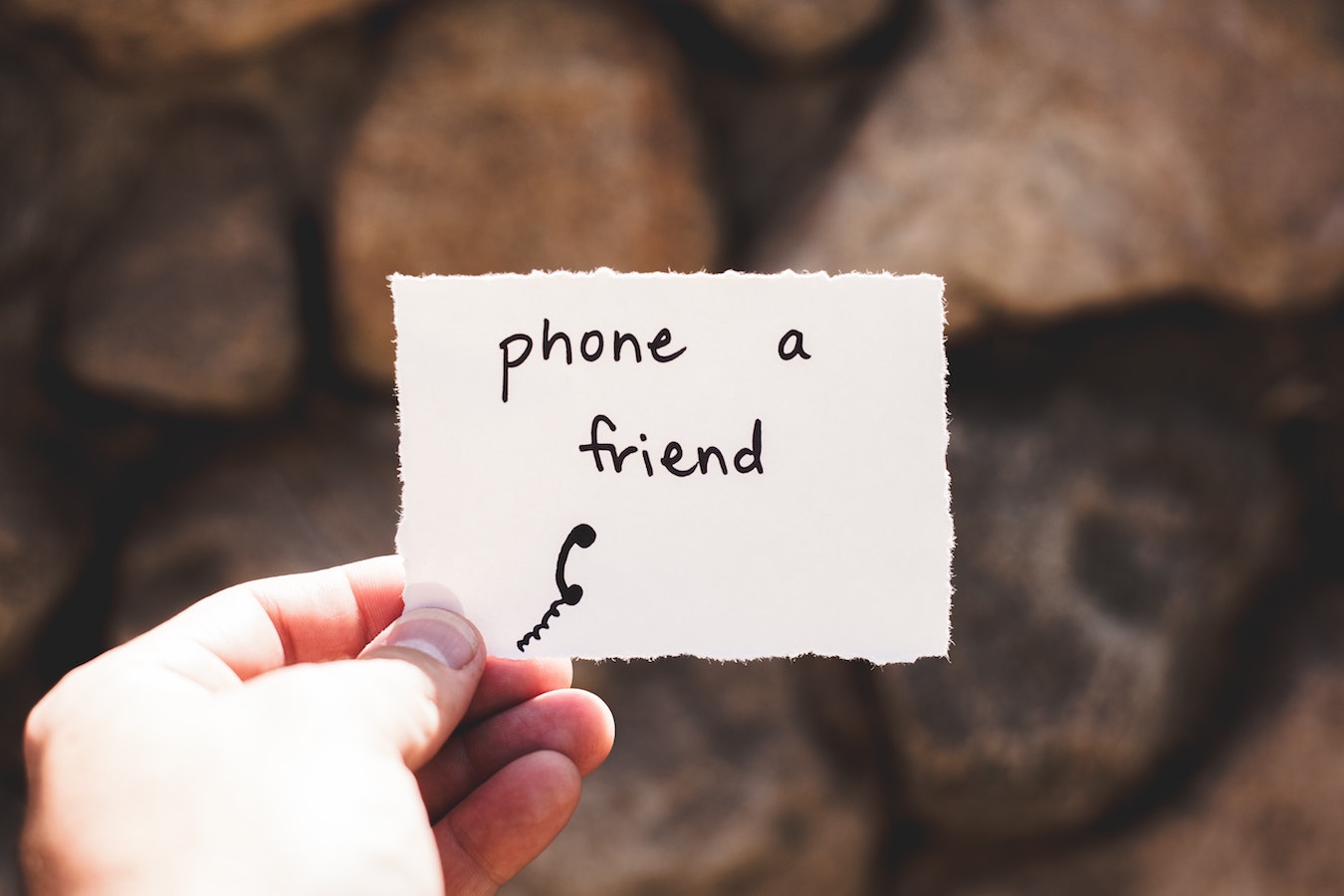
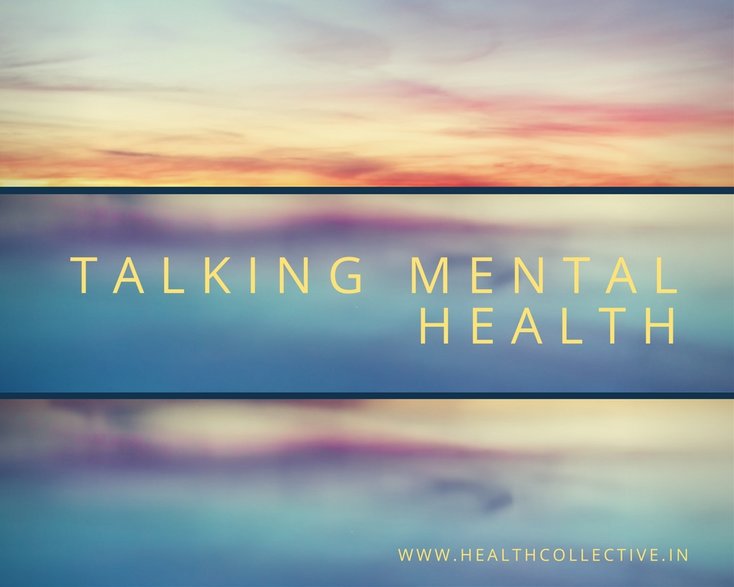
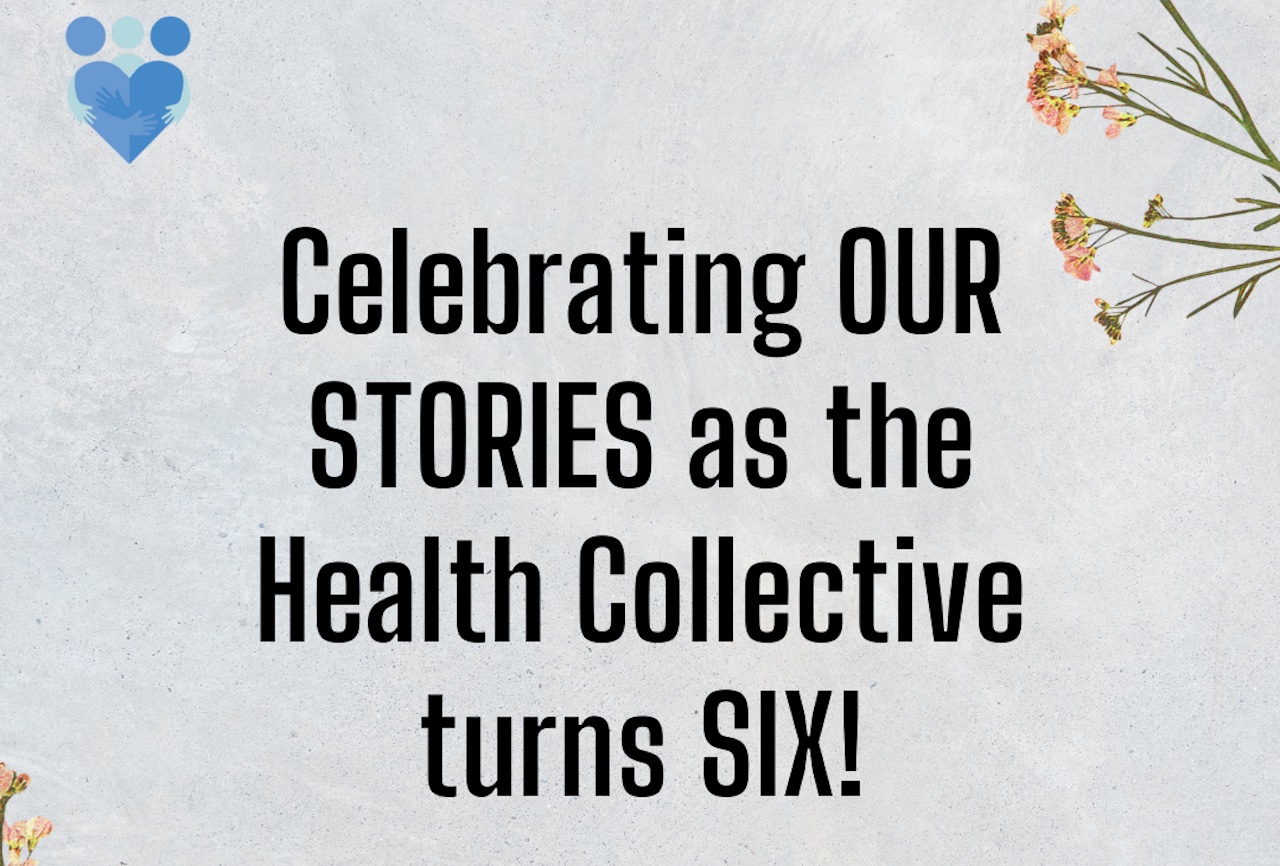
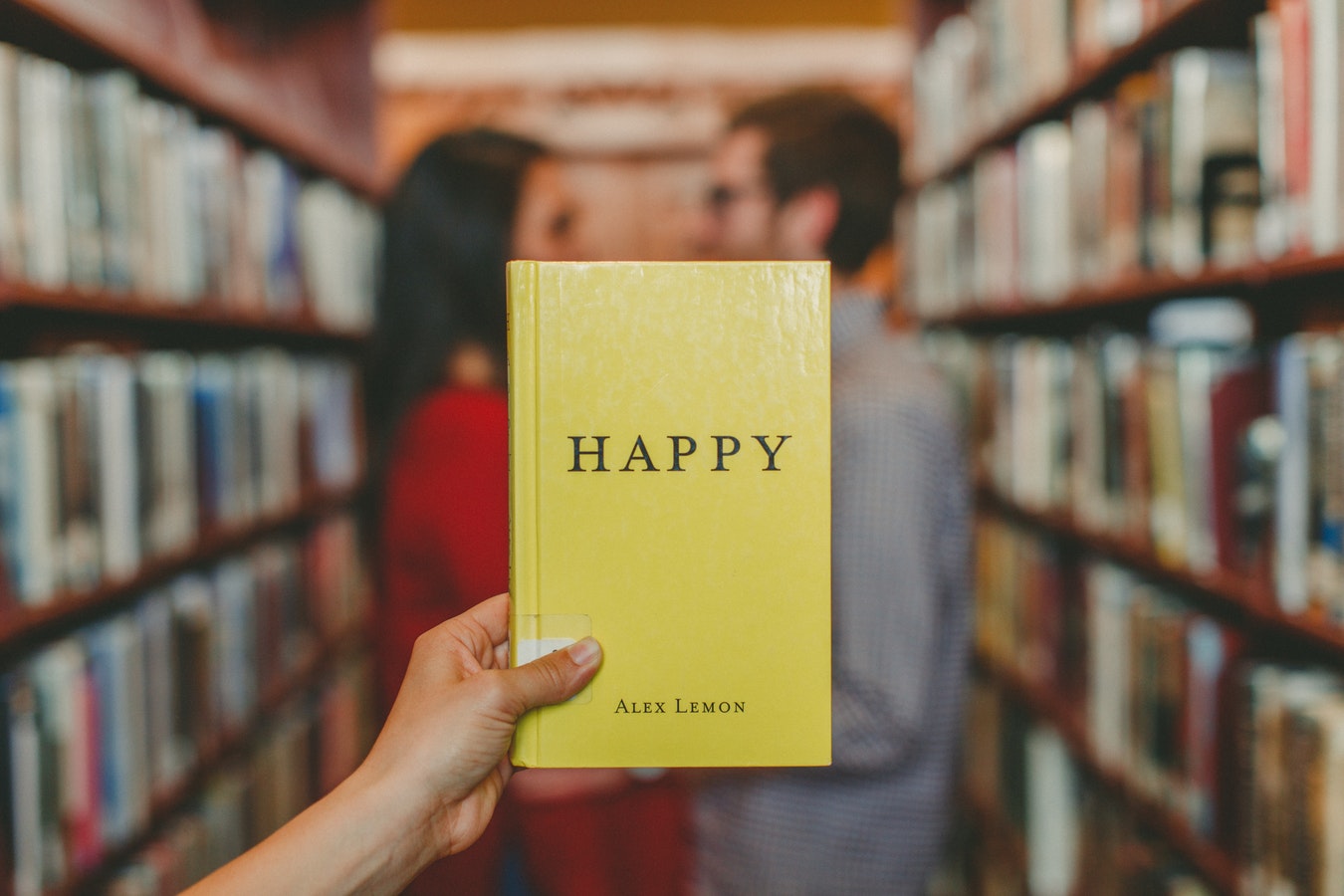
Pingback: How the Light Gets In: Attending to our Anxiety about COVID-19